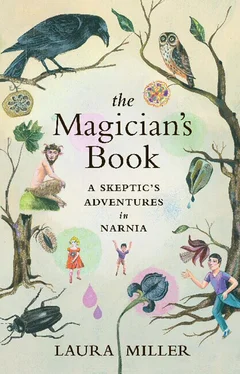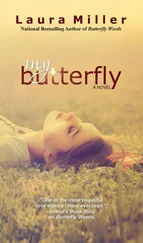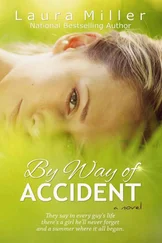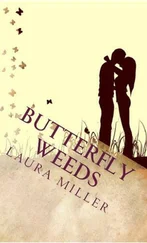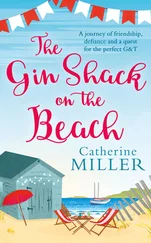A hater of progress, newfanglement, and vulgarity, Lewis was not a notably tolerant man, but reading brought out the populist in him. He worked out a set of criteria for identifying truly “literary” readers; their ranks include people who reread books, those who savor what they read for more than just the plot, and those for whom the first encounter with a favorite book is an “experience so momentous that only experiences of love, religion, or bereavement can furnish a standard of comparison. Their whole consciousness is changed. They have become what they were not before.”
Nothing on this list dictates what type of book the literary reader ought to prefer; it is the quality of the attention brought to it that matters. There is an uncharacteristic radicalism to Lewis’s further suggestion that if we can find “even one reader to whom the cheap little book with its double columns and the lurid daub on its cover had been a lifelong delight, who had read and reread it, who would notice, and object, if a single word were changed, then, however little we could see in it ourselves and however it was despised by our friends and colleagues, we should not dare to put it beyond the pale.”
He is, among other things, describing the way certain children read certain books, with a fervor that can inspire mystification and awe in their adult counterparts. Such experiences can’t be merely ephemeral, meaningless, but they often seem entirely inaccessible when we look back on them years later. This, at least, is what Clive James felt upon returning to Professor Challenger, and so he was forced to dismiss the whole situation as merely comical. Still, how could he have failed to be formed as a man and as a reader by Doyle’s adventure yarns? We would not expect any other overwhelming emotional experience from his childhood to have left him untouched. Today, James is a gifted, witty critic. Perhaps there is more to Professor Challenger than meets the eye.
The relationship between book and reader is intimate, at best a kind of love affair, and first loves are famously tenacious. A first love teaches you how to be with another human being by choice, rather than out of the imperative of blood ties. If we are lucky, our first love shows us how to negotiate the paradox of entering into a union with someone who remains fundamentally unknowable. First love is a momentous step in our emotional education, and in many ways, it shapes us forever.
The meeting of author and reader has a similar soul-shaping potential. The author who can make a world for a reader — make him believe that the people, places, and events he describes are, if anything, truer than his real, immediate surroundings — that author is someone with a mighty power indeed. Who can forget the first time they experienced this sensation? Who can doubt that every literary encounter they have afterward must somehow be colored by it? If we weigh the significance of a book by the effect it has on its readers, then the great children’s books suddenly turn up very high on the list.
I’ve titled this book after a passage in my current favorite among the Chronicles of Narnia, The Voyage of the Dawn Treader . It’s the part where Lucy, who has reluctantly agreed to enter the house of an invisible magician, slips into his study in order to read a spell out of his great book. She finds a couple of charms that intrigue and tempt her, and then she arrives at something special, a spell that is “like a story” but that disappears as she reads it, and soon vanishes even from her memory.
Perhaps Lewis is alluding here to the fleeting enchantment of childhood reading. But that’s not all this passage is about. He also had the idea that certain stories run deep in human nature, deeper than the individual books that tell them, deeper even than words themselves. He tried to tap into that kind of story in his fiction, and he achieved this in his children’s books better than anywhere else. The peculiarly heady effect of the Chronicles on young readers is testimony to his success. Francis Spufford, author of the memoir The Child That Books Built, writes of feeling that Lewis “had anticipated what would delight me with an almost unearthly intimacy,” in stories that became “the inevitable expressions of my longing.” The Chronicles have bewitched millions of children of vastly different backgrounds in just this way since they were first published in the 1950s.
Lucy can’t remember any more from the story than “a cup and a sword and a tree and a green hill,” but that doesn’t mean she isn’t able to recognize it when she meets it again, even when it appears in a different form. “Ever since that day,” the narrator continues, “what Lucy means by a good story is a story that reminds her of the forgotten story in the Magician’s Book.” I’ve read a lot of great literature since the day my second-grade teacher handed me a clothbound copy of The Lion, the Witch and the Wardrobe . I’ve read both towering masterpieces and less exalted novels that, when it comes to felicity of craftsmanship, thoroughly trounce any of Lewis’s fiction. But none of these is my Magician’s Book, the story to which all other stories must be compared. The Lion, the Witch and the Wardrobe, my introduction to Narnia, is that book for me, not merely because of its form or style or historical significance, but because of how it made me feel, which is at heart the fundamental question with any work of fiction. In the right light, The Lion, the Witch and the Wardrobe will always be the best book I’ve ever read.
Why is this so? Many of the answers lie with its author, a man whom the critic William Empson (ideologically unsympathetic to Lewis in almost every way) characterized as “the best read man of his generation, one who read everything and remembered everything he read.” Much of this reading, and many of Lewis’s own life experiences, make themselves felt in the Chronicles, as we would expect of any writer striving to bring his full talent to the task. He did not think any less of the work because it was intended for children, or any less of his readers because they were young. Lewis was cognizant of reading, the moment when the words of the writer mingle with the mind of the reader, as a kind of duet, with the reader bringing as much, in her own way, to the union as the writer. Here, from An Experiment in Criticism, is a remarkable description of the act of reading:
[If the] dance is devised by a master, the rests and movements, the quickenings and slowings, the easier and the more arduous passages, will come exactly as we need them; we shall be deliciously surprised by the satisfaction of wants we were not aware of till they were satisfied. We shall end up just tired enough and not too tired, and “on the right note.” It would have been unbearable if it had ended a moment sooner — or later — or in any different way. Looking back on the whole performance, we shall feel that we have been led through a pattern or arrangement of activities which our nature cried out for…. The relaxation, the slight (agreeable) weariness, the banishment of all our fidgets, at the close of a great work all proclaim that it has done us good.
Dance is the metaphor he chooses and, as Yeats observed, it is impossible to distinguish the dancer from the dance. Accordingly, if I want to write about the meanings of Narnia, then one aspect of the story must be personal; Lewis’s children’s fiction played an important role in my early life, so much so that I could never be the least bit objective about it. Some of what I have to say can only be demonstrated by my own experiences. Therefore, to quote Lewis again, “I must here be autobiographical for the sake of being evidential.” Literary value is personal, after all, because somebody — a person — needs to experience it as a reader for it to exist at all.
Читать дальше
